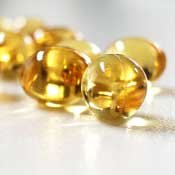More than half of U.S. adults take dietary supplements, the Centers for Disease Control and Prevention reports. Some consumers mistakenly think supplements give them a way out of eating healthy, making up for a nutrient-deficient diet. Supplements can't, however, substitute for eating well and having a healthy lifestyle.
A good multi-vitamin and other supplements are great for complementing a healthy diet. Of course, you should always talk with your doctor before taking any supplements to discuss the appropriate daily intake and possible side effects. And unlike prescription drugs, the FDA does not regulate supplements, so choose carefully.
If you find yourself swallowing your vitamins in pill form, take the time to find veggies, fruits, grains and meats that contain the nutrients you need. Below are some fruits and vegetables packed with what we need to maintain our health and vitality. Explore unfamiliar foods or find new recipes for the more common ones.
• Cruciferous vegetables, or vegetables in the cabbage family, are filled with phytonutrients, vitamin A, vitamin C, vitamin K and antioxidants. Kale, broccoli, brussels sprouts, cabbage, cauliflower and bok choy may lower risks for cancer, according to a 1996 American Dietetics Association (ADA) study.
• Dark leafy greens such as kale, spinach, greens, parsley, and red and green lettuce are high in the minerals such as iron, potassium, calcium and magnesium. They also have carotenoid, a phytonutrient, and vitamins B, C, E and K.
• Tomatoes are high in carotenoids and vitamin C.
• Beans and peas are great for protein, fiber, folate, calcium, iron, magnesium and potassium. Try peas, lentils, soybeans, lima beans, kidney beans, as well as other legumes. They may lower the risk of certain types of cancer and type 2 diabetes.
• Carrots have high levels of vitamin A, vitamin B, vitamin C, vitamin K and fiber (when raw). They also contain folate and the minerals potassium and magnesium. They are great for improving eyesight and protecting against cancer.
• Asparagus contains potassium, fiber, vitamins A, C, K and B-complex.
• Allium foods, such as garlic, onions, shallots, scallions and leeks are natural antibiotics that boost immunity, reduce risks of disease and fight infections.
• Sweet potatoes and yams have carotenoids, vitamins A, B6, and C, potassium, iron and fiber.
• Bell peppers (red, green, orange and yellow) have potassium, magnesium, fiber, and vitamins A, B, C and K.
• Summer and winter squash contain carotenoids, vitamins A and C, potassium, magnesium and fiber.
• Avocados contain 40 percent folate, which may reduce the risk of heart disease. They are high in monounsaturated "good" fat, which helps lower cholesterol. They are high in potassium, fiber and B-vitamins.
• Watermelon, cantaloupes and mangoes are high in fiber, vitamin A, C and potassium.



Comments
Use the comment form below to begin a discussion about this content.